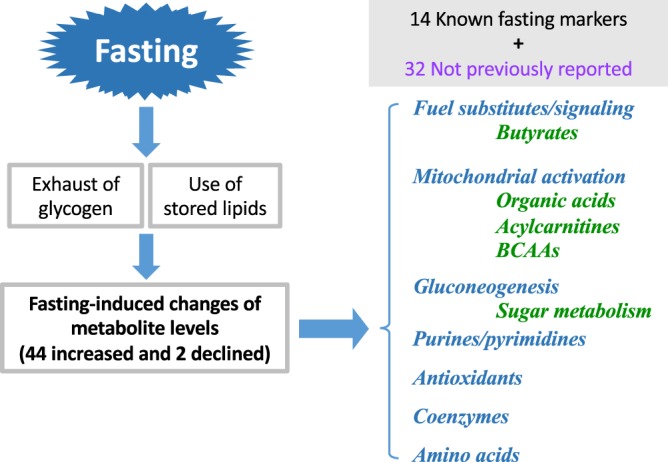Figure 7.

Summary of changes in the blood metabolome during 58 hr of fasting. Prolonged human fasting causes a much more metabolically active state than previously recognized. It has long been known that prolonged fasting exhausts glycogen stores (glucose), consumes stored lipids as fuel substitutes, and stimulates gluconeogenesis. Fourteen confirmed markers such as butyrates, acylcarnitines, and BCAAs increased. In this study, 32 new fasting marker metabolites, were identified. They are catabolized as butyrates, organic acids, sugar metabolites relevant to gluconeogenesis, acylcarnitines, BCAAs, amino acids, purines/pyrimidines, antioxidants, and coenzymes. These novel markers reveal possible new metabolic aspects of fasting. Increased levels of organic acids may reflect increased mitochondrial activity, from which ROS are counteracted by antioxidant production; ergothioneine (EG), ophthalmic acid (OA), pentose-phosphate-pathway (PPP) and others. Purine and pyrimidine anabolism is increased for RNA and protein synthesis. Moreover, not only 3-HB (a histone deacetylase inhibitor), but also purines, pyrimidines, and 2-oxyglutarate (2-OG) function may participate in signal reprogramming.
